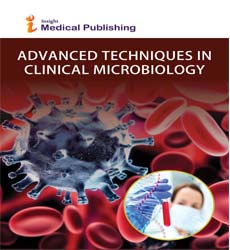Infectious Diseases and Microalgae
Abstract
Medical microbiology aims are the prevent, diagnosis and treatment of infectious diseases and include studies of various clinical applications of microbes for the improvement of health and Epidemiology is an important part of medical microbiology. According to the WHO, the pandemic is entering a new phase characterized by a dramatic shift of its epicenter to the developing world. Deaths from non-communicable diseases are on the rise. Emerging only at the end of 2019, the COVID-19 pandemic has quickly become a global threat to population health, infecting over 153 million people and caused a considerable number of additional deaths with still unknown long-term impact on morbidity as well as everywhere has impacted the ability of health systems to provide undisrupted health services. Clinical microbiology deals with the interrelation of macro- and microorganisms under normal and pathological conditions, their effects on the human body, and the methods of treating those infections.
In the last decades, changing ways of life and nutrition have additionally prompted the emergence of new dangerous pandemics and relevant information necessary for optimal patient management that requires new decisions. The past and new virus COVID-19 pandemic affecting societies and econ-omies at high scale and humans face the hard challenges. Vaccines versus pandemics are not always effective. Presently, fruits and vegetables incorporate little key nutrients. Therefore, the priority strategy for dealing with present and future pandemics threats must be increasing the immunity system of humans and animals to infections. Microalgae have a high potential for present and future feed & food security and human health. Therefore, for increasing the immunity system of humans and animals to infections, long-term priorities must be the use of microalgae components in diets
Open Access Journals
- Aquaculture & Veterinary Science
- Chemistry & Chemical Sciences
- Clinical Sciences
- Engineering
- General Science
- Genetics & Molecular Biology
- Health Care & Nursing
- Immunology & Microbiology
- Materials Science
- Mathematics & Physics
- Medical Sciences
- Neurology & Psychiatry
- Oncology & Cancer Science
- Pharmaceutical Sciences
